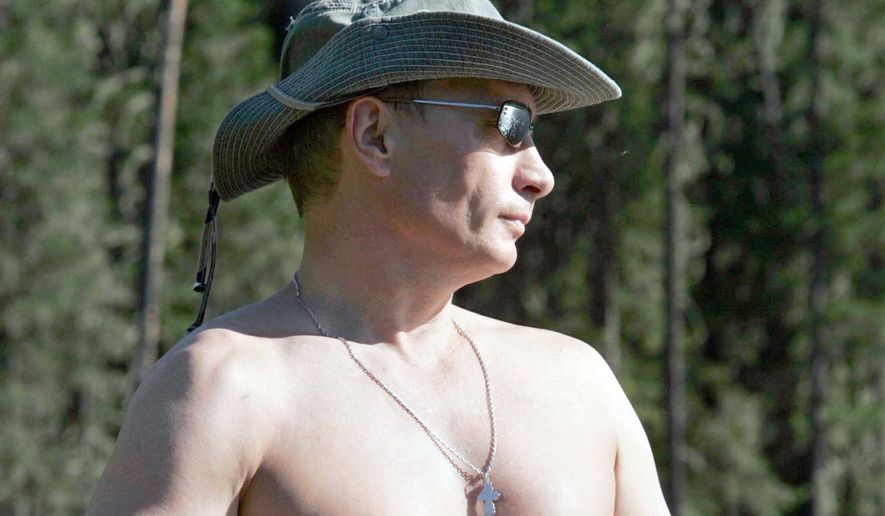He hasn’t — yet — restored the old Soviet Union, but Russian President Vladimir Putin can at least revive the fitness standards of the old USSR.
The Moscow Times reported Tuesday that Mr. Putin has signed a new law to revive physical training standards that were once mandatory in the Soviet Union, promising rewards to those who pass the fitness tests.
The training regimen program, known as “Ready for Labor and Defense,” or GTO in its Russian acronym, is based on training and fitness exercises developed during Soviet times to standardize physical development in areas such as running, gymnastics, discus and javelin, swimming, skiing and biking, as well as shooting and trekking skills.
The Russian Sports Ministry will determine the new standards for the fitness categories, under three grades for passing, and successful participants will receive a bronze, silver or gold pin accordingly. Training centers will be erected for Russians to exercise and train, and the total cost for the new law is estimated at 1.2 billion rubles — about $18 million.
The original GTO program was introduced in the Soviet Union in 1931 under Stalin, and before the final collapse of the regime in 1991, millions of people participated in it. A program to offer the physical standards program to members of the Russian parliament, the Duma, was inaugurated earlier this year.
Mr. Putin, who once lamented the collapse of the Soviet Union as one of the great geopolitical “catastrophes” of the 20th century, first floated the idea of reviving the GTO training regimen in 2014, telling national sports officials in March that it was vital to “develop mass sport” and “attract the vast majority of our citizens to take part in regular physical training.”
The original GTO program was introduced in the Soviet Union in 1931. By the end of the socialist system, millions of people participated in it. Russian health standards have lagged far behind the West in the decades since the end of Communism, plagued by high levels of alcoholism, heavy smoking rates and stress. The average Russian life expectancy in 2013 was 71.6 years, almost five years shorter than the average in the U.S. and European Union.
The newspaper reported that it is still uncertain if testing will be required for all Russians and if special awards — beyond pins — will be granted to those who excel. One idea is to reward athletic Russians with more free time: Vitaly Mutko, a Minister of Sports, has suggested that the athletes who pass should receive bonus paid vacations.
• Meghan Bartlett can be reached at mbartlett@washingtontimes.com.




Please read our comment policy before commenting.